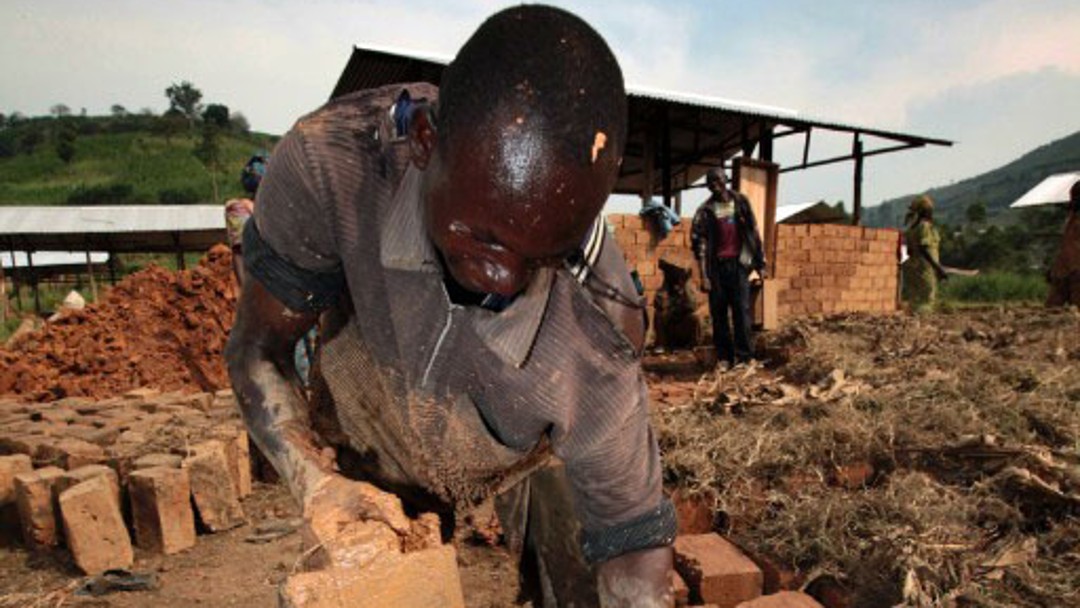News from 2015-02-12 / KfW Development Bank
Against the Use of Child Soldiers
International Day: KfW is supporting people in fragile states
Used and abused as combatants, they’re just as much perpetrators as they are victims: the UN estimates that around 250,000 minors are being actively deployed as child soldiers in the wars and armed conflicts ravaging our world. They are often forced to perform atrocious acts, sometimes against their own families, which makes it all the more difficult for them to re-integrate into civilian life. The "International Day against the Use of Child Soldiers" (12 February) calls for urgent action to be taken against such severe use and abuse of children. KfW has also long since devoted energy, primarily in African countries, to re-integrating former child soldiers into society.
Child soldiers are mainly deployed in crisis-ridden countries, otherwise known as "fragile states", where either conflicts are still raging or armed hostilities have ended only very recently. In most cases, the governments are weak, while the general populations suffer from poverty and are supplied only with inadequate provisions. KfW has significantly stepped up its commitment to fragile states over the last few years. Indeed, KfW Development Bank is now making an active contribution in 41 out of the 51 states around the world that the OECD classifies as fragile. Commitments for projects and programmes in these countries rose from EUR 1 billion in 2010 to EUR 1.5 billion in 2014.
"Peace funds" improve people’s living conditions
KfW is therefore providing assistance in numerous countries to stabilise peace, avoid new crises and prevent wars from breaking out in future. In the Democratic Republic of the Congo, KfW Development Bank is supporting a "peace fund" which helps to improve people’s living conditions on behalf of the Federal Ministry for Economic Cooperation and Development (BMZ).
During the first phase of the programme, almost 3,000 former child soldiers learned how to read and write. Also, several thousand victims of sexual violence were given medical and psychological care. Girls in particular suffer terribly during armed conflicts – since they often experience sexual violence at the hands of armies and rebel groups, and are increasingly exposed to the risk of being infected with HIV.
Furthermore, the fund is primarily supporting the setting-up of social and economic infrastructure through building health units, schools, streets and markets, thus providing the sustainable prospects for the future which are urgently needed, especially for children. Similar programmes whereby KfW helps former combatants – including child soldiers – to re-integrate into civilian life have been promoted in South Sudan, Burundi, Sierra Leone and Liberia. For the most part, former fighters are provided with education and training, while the local economic cycles are stimulated in the regions these people are returning to. This should ultimately result in more job opportunities and working possibilities, allowing the former soldiers to escape poverty and earn a living without having to take up arms ever again.
Text: Michael Ruffert


Share page
To share the content of this page with your network, click on one of the icons below.
Note on data protection: When you share content, your personal data is transferred to the selected network.
Data protection
Alternatively, you can also copy the short link: https://www.kfw-entwicklungsbank.de/s/enzBWrMC._oA
Copy link Link copied